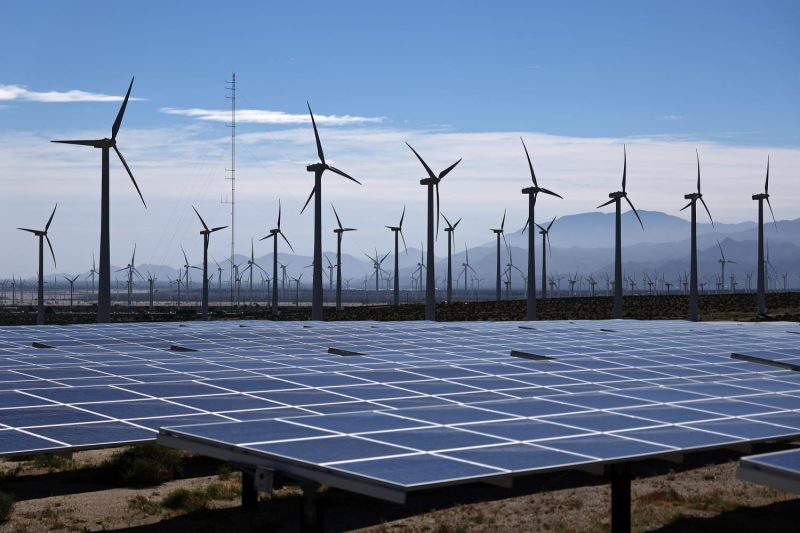Renewable Energy Demand Trending Upward as Global Electricity Consumption Soars
The world is currently on the cusp of a significant transition in its energy landscape. As highlighted in a recent report by the International Energy Agency (IEA), the demand for renewable energy sources is poised to triple in the coming years, driven by a surge in global electricity consumption. This fundamental shift in the energy sector underscores the pressing need for sustainable solutions to meet the increasing power needs of a growing population while mitigating the impacts of climate change.
As populations expand and economies grow, the demand for electricity is skyrocketing worldwide. According to the IEA report, electricity demand is expected to rise by a substantial 70% over the next two decades. This surge can be attributed to a variety of factors, including the electrification of transportation, heating, and industrial processes, as well as the rising prevalence of digital technologies and smart devices that rely on electricity to function.
In response to this escalating demand, nations around the globe are increasingly turning to renewable energy sources to power their grids. Renewable energy, such as solar, wind, hydroelectric, and geothermal power, offers a sustainable and environmentally friendly alternative to traditional fossil fuels like coal and natural gas. These sources of energy are not only abundant and inexhaustible but also produce minimal greenhouse gas emissions, making them key players in combating climate change.
One of the major drivers behind the growing adoption of renewable energy is the increasing competitiveness of renewables in the energy market. Over the past decade, the cost of solar and wind energy has plummeted, making these sources economically viable alternatives to fossil fuels. In many regions, renewable energy projects now offer some of the cheapest sources of electricity generation, further incentivizing their uptake.
Furthermore, government policies and incentives play a crucial role in promoting the expansion of renewable energy capacities. Many countries have set ambitious renewable energy targets and implemented supportive policies to encourage investment in clean energy projects. Initiatives such as feed-in tariffs, tax credits, and renewable portfolio standards have helped create a favorable environment for the development of renewable energy infrastructure.
Despite the remarkable progress in renewable energy deployment, challenges remain on the path to achieving a fully sustainable energy system. The intermittent nature of renewable sources, such as solar and wind power, poses challenges for grid stability and reliability. To address these issues, innovative solutions like energy storage technologies, smart grid systems, and demand-side management strategies are being developed to enhance the integration of renewables into the grid.
In conclusion, the exponential growth in global electricity demand necessitates a rapid transition to renewable energy sources to ensure a sustainable and secure energy future. As governments, industries, and communities work together to accelerate the adoption of renewables, we move closer to a cleaner, more resilient energy system that can power the world for generations to come. Embracing renewable energy is not only a necessity but also a tremendous opportunity to build a more sustainable and prosperous future for all.
